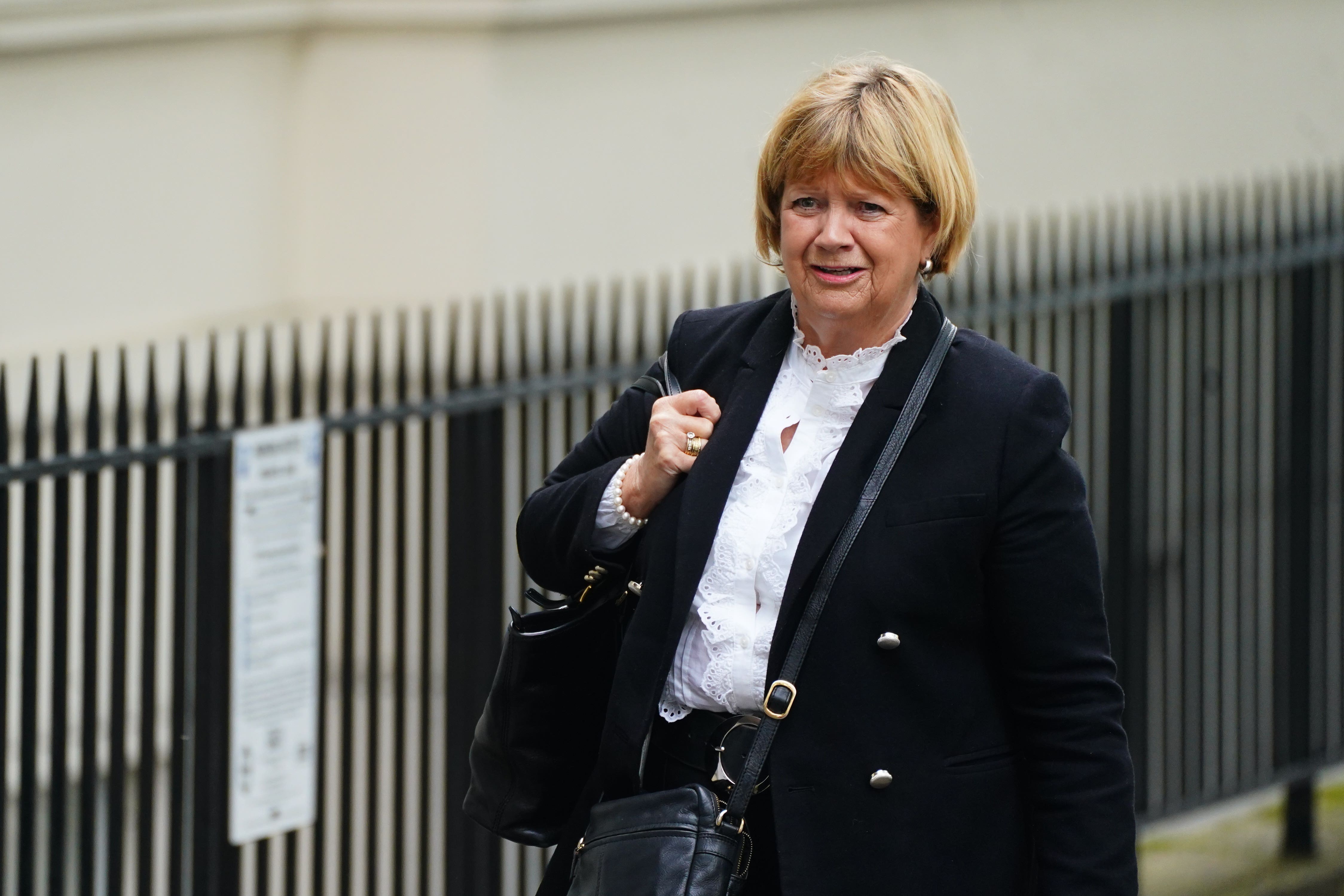Covid inquiry hears evidence on how the pandemic impacted the NHS
This part of the inquiry is looking at the response to Covid-19 by assessing the impact of the pandemic on patients and staff.

The chairwoman of the UK Covid-19 Inquiry has begun to hear evidence relating to the impact of the pandemic on patients and the NHS.
Baroness Heather Hallett told the inquiry on Monday morning that she understood people’s concerns over how much evidence would be heard but argued the hearing needed to stick to its timescale.
It comes after the Covid-19 Bereaved Families for Justice UK campaign group said only two of the 23 witnesses it put forward for module three of the inquiry would be heard.
Lady Hallett said: “I apologise in advance to those who would like us to spend more time examining particular issues in these hearings.
“I understand their concerns and, as I have said before, the longer any set of hearings take, the longer the delay in making recommendations and the longer the delay in investigating other important modules, such as the impact on the care sector and children and young people.”
Module three of the inquiry began on Monday with a film showing patients and NHS workers speaking about working on the frontline during the pandemic.
Writer and broadcaster Michael Rosen is seen discussing his treatment in intensive care when he was struck by Covid-19.
He said he was asked by staff to sign a form authorising him to be put “to sleep”.
When he asked whether he would wake up, he was told he would have a “50/50” chance, he said.
This part of the inquiry is looking at the governmental and societal response to Covid-19 by assessing the impact of the pandemic on how NHS services were delivered.
This will include how managers led the pandemic response, the role of primary care and GPs, NHS backlogs and how the vaccine programme was integrated.
The diagnosis of long Covid and the support offered to those affected will also be examined.
Evidence this week will come from Covid-19 Bereaved Families for Justice; Dr Barry Jones, chairman of the Covid-19 Airborne Transmission Alliance; Richard Brunt, director of engagement and policy division at the Health and Safety Executive; and Sara Gorton, head of health at Unison.
Jacqueline Carey KC, counsel to the inquiry, told the hearing on Monday there was a “lack of scientific consensus” about the transmission of Covid-19 during the pandemic, which may not yet have been resolved.
She also said there were not enough GPs to meet demand, while one practice nurse described having up to 20 different guidelines to read daily which took away from patient care.
This module of the inquiry is one of the most important in understanding the true horrors of the pandemic. It will reveal some of the most shocking details, distressing stories and outrageous scandals that took place
The NHS 111 services and 999 also came under intense pressure, the inquiry heard.
Ms Carey said the inquiry would hear about the use of DNA CPR (do not attempt cardiopulmonary resuscitation) orders during the pandemic.
She also touched on the “immense pain and harm” felt by families unable to properly say goodbye to loved ones during the crisis, adding: “You may feel that the UK may need to act differently if there were to be a future pandemic, you may think it cannot be beyond the capabilities of our society to provide dignity in death, to facilitate visits at the end of life, and these may be matters that you’ll wish to consider, both in this and indeed in future modules.”
Other aspects which will be examined in module three will include the impact of shielding and long Covid.
Ms Carey urged Lady Hallett to consider “the extent to which long- term consequences of Covid were considered as part of core decision making in those early days”.
During the third module, the inquiry will also scrutinise how the crisis impacted other aspects of health care – including a decline in people being admitted to hospital for heart attacks during the pandemic; delays in hip replacement surgeries; a reduction in bowel cancer diagnoses; the impact on in-patient mental health care for children and young people and maternity care.
“My lady will now see that however necessary it was to tell the public to ‘stay at home protect the NHS’, there was an undoubted impact on people who needed care for non-covid conditions in a way that may not necessarily have been intended,” Ms Carey said.
“Indeed, there is evidence that irrespective of the condition, there was a reluctance by many to not attend hospital.”
Nicola Brook, solicitor at Broudie Jackson Canter, which represents more than 7,000 families from the Covid-19 Bereaved Families for Justice UK group, said before the hearing: “This module of the inquiry is one of the most important in understanding the true horrors of the pandemic.
“It will reveal some of the most shocking details, distressing stories and outrageous scandals that took place.
“Despite the narrative pedalled by those in charge that the UK coped, the sad fact is people died unnecessarily.
“Groups like the disabled and the elderly were written off because it was considered that their lives were not worth saving.”
In July, the inquiry’s first report into preparedness for a pandemic found the UK Government and the civil service “failed” the public due to “significant flaws”.
It said there was a “damaging absence of focus” on the measures and infrastructure that would be needed to deal with a fast-spreading disease, even though a coronavirus outbreak at pandemic scale “was foreseeable”.
The public hearings for module three are expected to run for 10 weeks.
Bookmark popover
Removed from bookmarks